Reflecting on the Resourceful Cities journey to date
Edited on
02 June 2022Setting out on this journey over two years ago, we met (most of us) for the first time, in The Hague, in early October 2019. Little did we realise the luxury of that opportunity to meet face to face, to shake hands, embrace, to exchange ideas through post it notes passed freely from one to another, over conversation filled coffee breaks and cosy meals. Not only did we have this luxury once but our second meeting in Mechelen gave us the opportunity to cement strong bonds and trusting relationships that have helped to see us through the many unexpected bumps in the road of our journey ahead.
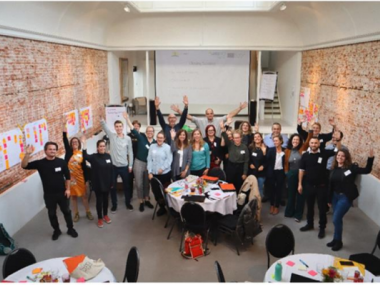
Most of us are no strangers to European projects, we know they bring both opportunities and challenges. We can safely say however that adapting to this ever changing situation presented by the global pandemic while continuing to fulfil our commitments as part of this project, has at times put us all to the test! It is timely then, two years into our journey to take the opportunity to reflect on our network experience to date. This reflection was facilitated through the framework of the URBACT mid-term review process which included a survey to all network partners in September 2021, followed by dedicated one to one sessions with partners in October and a deep dive into partner experiences during our online mid-term review meeting held in late October. This process offered valuable inputs, reflections and contributions by our dedicated and courageous change-making partners and as a result we have made some small adaptations to our upcoming work programme. Let’s take a look though at some of the key reflections arising from our process!
What were some of the key highlights of partners’ experience in the network so far?
Partners stated that their experience in the network overall has been extremely positive and worthwhile while at the same time challenging them beyond their comfort zone and developing valuable capacity. Of note is their appreciation of meeting and learning from other cities across Europe but also their appreciation of the URBACT framework which has enabled them to make valuable connections with local stakeholders which will have a lasting impact beyond the life and activities of this network.
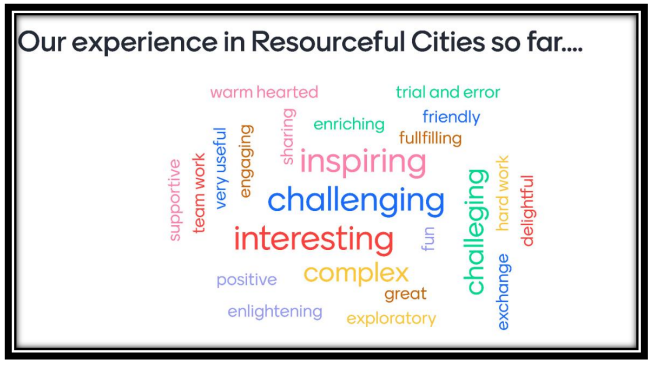
Figure 2: Partner word cloud from the dedicated MTR session
Without a doubt, one of the key highlights for all partners involved was the opportunity to exchange with other cities in the network. Partners greatly appreciated the opportunities, provided during our transnational meetings (physical and virtual) to be inspired by activities and initiatives in other cities.
Partners also highlighted their appreciation for the network supports in relation to gender and inclusivity. They found it very enlightening to consider how they could make the activities surrounding the URCs more inclusive and accessible to all.
At the local level partners highlighted the valuable opportunity provided by the URBACT framework and methodology enabling and driving them to get out into the field, engage with and get to know passionate stakeholders who are committed to driving change. They appreciate the opportunity that has been provided to them to get to know first-hand the concerns of stakeholders and to provide them with a channel within the municipality to be heard and to make positive change. Partners reflected that it has been a really positive experience to get know and work with the members of their URBACT Local Groups (ULGs).
What are the key achievements within the network so far?
In spite of the challenging circumstances arising from the pandemic, our partner cities have shown impressive levels of resilience and resourcefulness as they have continued to make progress and reach key milestones with the network programme.
While it was initially planned to have all our transnational meetings in person, our plans changed with the onset of the pandemic and we quickly upskilled to adapt to digital tools and formats for our meetings and exchanges using platforms like Zoom and Miro.
Transnational meetings with a thematic focus:
Since the beginning of phase two, partners have come together (virtually) for six transnational meetings. Each meeting ran over two days and was broken into four two hour sessions. Every transnational meeting was hosted by a partner city and had a particular focus which is detailed in the table below. The meetings were designed to inspire partners through sharing good practice examples from the host city and provided an opportunity for partners to exchange and learn from each other.

City to City Sessions:
We also held a series of four city to city sessions which were shorter more focussed sessions addressing specific topics which were identified as being of interest to some or all partners, some of whom had a particular skillset or experience to share relating to the topic identified. This was a valuable opportunity designed to help partners think about what actions they might like to include in their IAP and how those actions could be shaped.

IAP Roadmaps:
A first and key milestone successfully reached by all Resourceful Cities partners was the production of their IAP roadmaps in December 2020. The roadmaps were essentially the individual partner work plans that set out how each partner, together with their stakeholders, planned to arrive at the end goal of having a fit for purpose IAP that could be implemented locally. The roadmaps detailed the process that each city intended to follow, linking the transnational exchange and learning with the work of the local stakeholders and thus were a vital element in informing the action planning journey of each city.
Small Scale Actions:
Small Scale Actions (SSAs) were a new and exciting element introduced by URBACT in this round of action planning networks. SSAs are an opportunity for cities to trial and test on a small scale, the implementation of an idea or concept (perhaps already tried in another city) to check its relevance, feasibility and added value in a particular local context.
While not obligatory there was a very high level of uptake of this activity among Resourceful Cities partners with a total of 19 SSAs underway within the network. All partners are undertaking at least one SSA while the cities of Oslo and The Hague are undertaking five each and Ciudad Real is undertaking a total of three SSAs in their city.
Over ¾ of SSAs within Resourceful Cities involve an action relating to the promotion of resource reduction, repair, reuse or recycling. These include actions such as composting pilots in Cáceres & Bucharest 3rd District, a community training programme on upcycling furniture in Ciudad Real, a demand driven resource collection initiative in The Hague and piloting a zero waste market in Vila Nova de Famalicao.
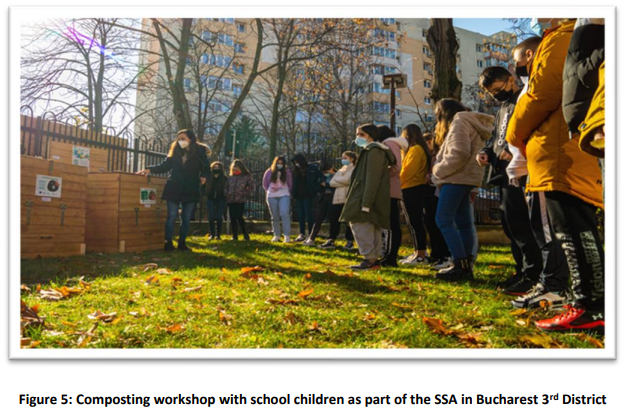
The SSA in the city of Opole is focusing on raising awareness and promoting behaviour change through the trialing of a reuse space, while the city of Zagreb is undertaking market research amongst citizens to better understand what types of services their urban resource centre (URC) could provide that would be of most benefit to citizens.
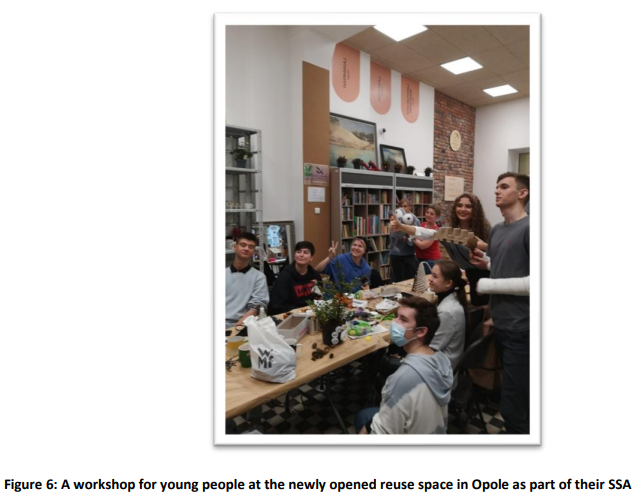
The city of Mechelen is developing a mobile mushroom growing facility to trial the growing of mushrooms using coffee waste, while the city of Oslo trialed together with a local youth group, the building of public furniture from reused material.
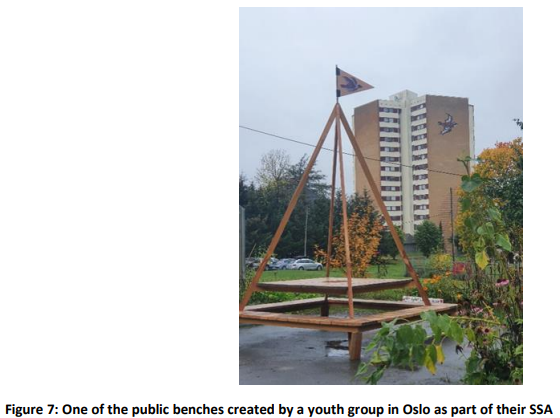
While there have been delays in the implementation of many of the SSAs (mostly pandemic related) they are now underway and partners are gathering some very useful learning and data from these small scale trials which will undoubtedly help to inform more robust, derisked and impactful actions within their final IAPs.
We will be producing a compendium of these SSAs before the end of the project to share learning from these exciting city initiatives – so watch this space!
Draft Integrated Action Plans
It has been a challenge for partners to find time to focus on writing their draft IAPs while also working on their SSAs. Nevertheless we had a very productive peer review of the first draft IAPs in November with the support of ad hoc expert Marion Cugnet. Each partner reviewed four other IAPs from partners within the network and provided constructive feedback with the aid of a pre prepared assessment grid. Partners also undertook a role play exercise whereby they were asked to provide feedback on the draft IAPs from the perspective of a particular role such as a journalist, a local politician etc.
Partners are now working on incorporating the valuable feedback received into their draft IAPs and will submit a first draft by the end of the year to be further adapted and improved between now and the end of the project.
What were the enabling factors supporting these achievements?
It’s clear that partners have made a lot of progress in spite of these challenging times. During our mid term reflection process we asked partners to reflect on some of the enabling factors that supported these achievements and they cited several:
- Setting up the URBACT local group (ULG) early with passionate and experienced people was a key enabling factor that allowed partners to stay on track with the action planning process and deliver on project milestones.
- Peer support provided through the URBACT framework - allowing partners to exchange, share and learn with peers in partner cities about shared challenges and finding ways to overcome these challenges was very beneficial.
- SSA’s helped to maintain stakeholder motivation and raise the project profile locally.
- The URBACT methodology enabled partners to get out into the field and supported them to work in a more integrated and progressive fashion, enabling greater connectivity and cohesiveness between stakeholders and more productive and sustainable outcomes.
What about the barriers and challenges?
Moments of great change and transformation are often preceded by moments of great challenge and the Resourceful Cities partners have both overcome and continue to battle with multiple challenging experiences throughout this action planning process. The most common challenges cited by partners included:
- Lack of time - Working and delivering on the SSA, while a very positive opportunity giving partners more time in the field, was also reported as a vastly time consuming activity which means that partners have less time than they would like to work on and deliver on other areas of the project such as the writing of the IAP and project management tasks
- Pandemic related challenges including mental and physical fatigue, a lack of resources when staff were redirected to other departments to respond to the emergency and a reprioritization and redirection of time, preoccupation and effort among stakeholders in general.
- The transition to online meetings and digital engagement - digital meetings often lack the energy and enthusiasm of physical meetings. Moreover stakeholders often do not have the same comfort or confidence levels in sharing ideas openly in digital meetings with other participants particularly if they have not had the opportunity to build solid and trusting relationships in advance
In spite of these challenges however partner cities have truly shown themselves worthy of the title ‘resourceful cities’ showing adaptability, determination and dynamism. In the face of adversity they remain commited to finding solutions and making progress.
What lies ahead for the network?
Well if these last years have taught us anything it’s that nothing is certain! So we look to the future with optimism, we hope for the best but we also plan for a potential need to adapt changing situations. Looking ahead between now and the end of the network, we see however that it will be an exceptionally busy time with partners actively putting the finishing touches to their draft IAPs.
With regard to the ongoing pandemic, we are hoping that we will be able to proceed with a physical meeting in Zagreb in April. Everyone agrees that the consortium has enjoyed working together and that partners complement each other well. We do hope that we will have the chance to meet physically again before the formal end of the network.
As for the longer term i.e. after the official end of this network, we have agreed to continue working in an informal network. The informal network will function organically and be adaptable to the needs of cities in that moment. Some activities and foci envisaged include collaborating on European funding applications to support the development and implementation of projects of common interest.
Whatever else the future holds partners are extremely grateful for the opportunity provided by the network to work together both within the consortium but equally appreciate the methodology shared to support work locally within each partner city.
Partners have until now, been heavily focussed on progressing with network activities and reaching project milestones. Our efforts at network level have been given to knowledge gathering, capacity building, sharing and learning through activities, case studies, expert presentations and masterclasses and sharing tools and methods to support the action planning process.
Now at the end of 2021 we pause for thought, reflecting on the highs and lows of our journey so far. In spite of being consigned to working almost entirely online and at a physical distance we have not let the situation stop us from making valuable progress both at the local and transnational level.
The network has proved dynamic, adaptable and resilient and we are confident we can deal with whatever challenges are thrown at us between now the end of our journey in summer 2022. Thus we look forward to welcoming in the new year and continuing to support each other to develop a robust IAPs which are ambitious, yet realistic and backed up with achievable means of resourcing and implementation. Onwards and upwards!
Keywords: #sustainability #circular economy #achievement #reflection # resilience #urban resource centre #innovation #changemakers #small scale actions #pilots
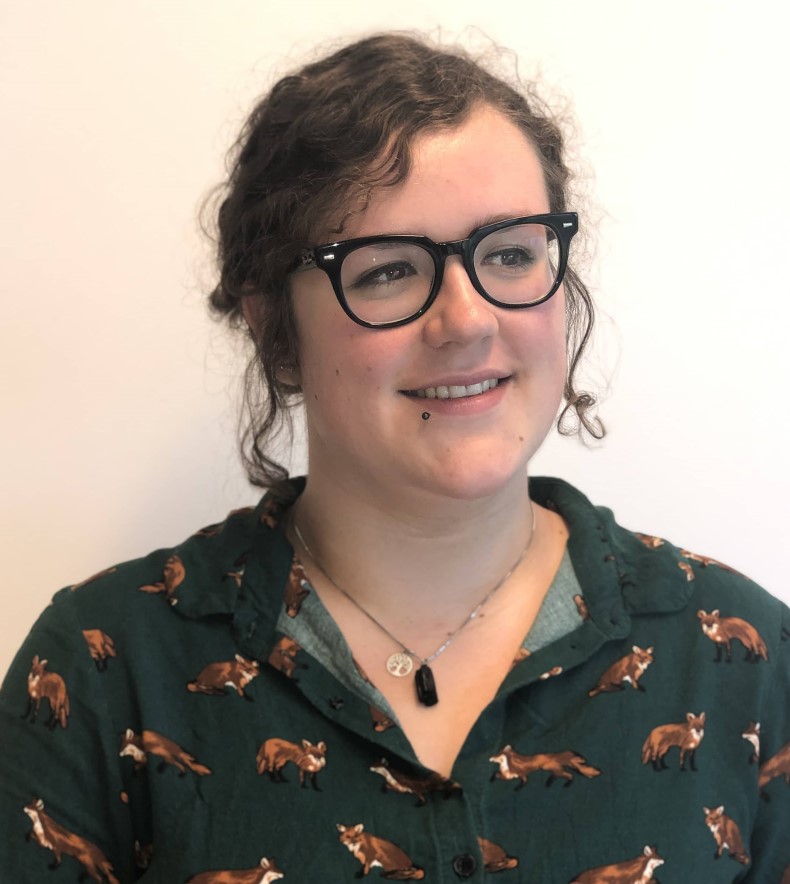 Submitted by Amy Jansen on
Submitted by Amy Jansen on
